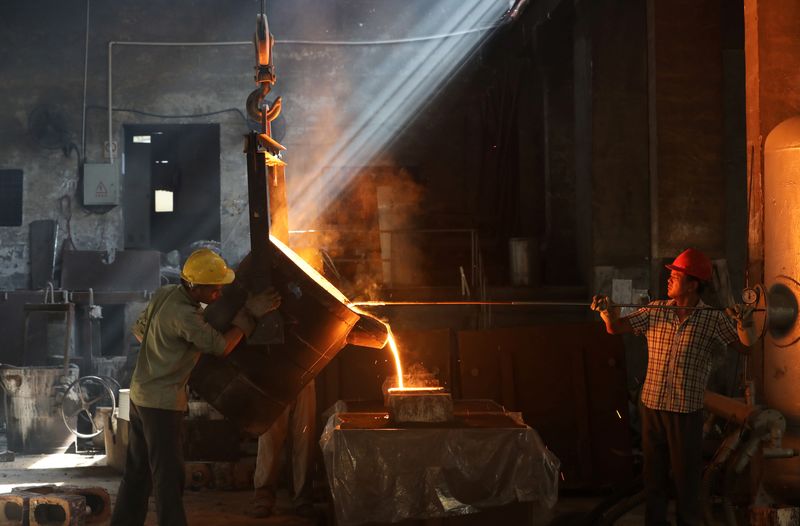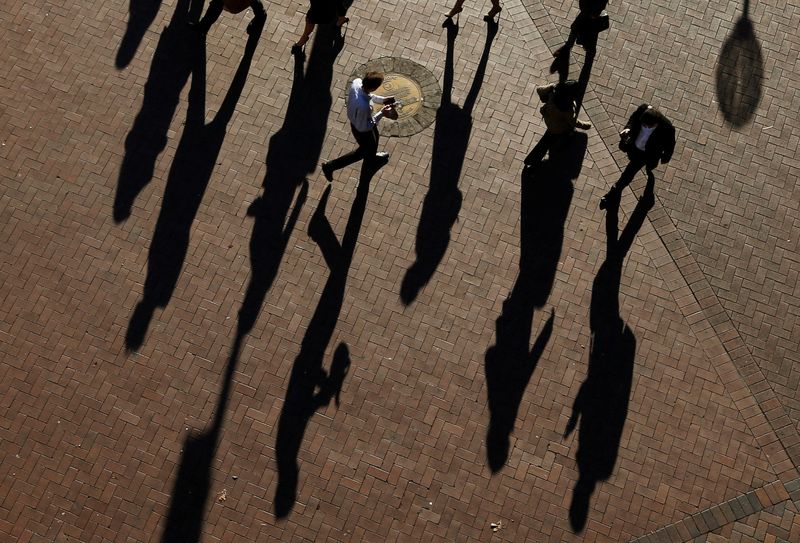3 scenarios for the Supreme Court to intervene in the election
Will the justices cast the final vote for president?
Aziz Huq teaches law at the University of Chicago and is the author of The Collapse of Constitutional Remedies.
The new Supreme Court term that began this week isn’t overflowing with obvious blockbusters. The justices have taken one big culture-war case — a challenge to Tennessee’s ban on gender-affirming health care for trans youth — but turned down invitations to deepen the court’s assault on the administrative state.
Will such modesty last? One reason to think not is this: The presidential election cycle is just getting to the point where political conflicts could mutate into constitutional cases. In fact, the Supreme Court has already shown it is unafraid to scramble electoral rules mere weeks before balloting starts: It recently accepted a Republican effort to require proof of citizenship for some Arizona ballots.
It’s impossible to predict whether another Bush v. Gore is around the corner. Yet the court may well soon face a high-profile dispute with no obviously “right” legal answer — and where the result decides the election.
Three paths already exist for the Supreme Court if it wants to reshape the 2024 outcome.
The first path lies through a challenge to a state court’s ruling on state election law. The Supreme Court ordinarily hears only federal law cases. But a 2022 decision in Moore v. Harper held that the justices could step in if state judges “exceeded the bounds of ordinary judicial review” in ruling on state election law. The justices never clarified what this vague language could entail. This means they have a free hand to second-guess state courts’ state law decisions when it comes to federal elections.
In North Carolina, several suits have been filed in state court challenging the state’s voter rolls and absentee ballot procedures. Perhaps the most significant — alleging that 225,000 voters were improperly registered — just moved to federal court. Whether it stays there or is bounced back to state court, it is one of several vehicles for the justices to potentially decide the 2024 presidential race if the Tar Heel state is pivotal. A challenge to voter registration practices in Pennsylvania, turned away by the justices just this Monday, is a reminder that this issue could come up in any of the swing states.
A second path for the court opens after votes are cast. After a state’s winner is declared, a slate of electors must then be “certified” by each state before the Electoral College convenes to formally anoint the next president. What happens, however, if a state fails to submit its slate to Congress in time?
Until recently, the answer was not much. The 1887 Electoral Count Act said that submissions by a December “safe harbor” date were treated as “conclusive,” but late submissions could still be considered. However, when Congress revised that statute in 2022 to try to prevent another instance of the fraud and chaos that took place on Jan. 6, 2021, it amended the “safe harbor” deadline to make it mandatory. The statute, however, is silent as to what happens if a state blows by the must-submit date. Can Congress still consider the slate? Or would the state’s Electoral College seats be eliminated from the final tally? The new law punts this question to the courts, and it creates a fast-track mechanism for certification-related disputes to reach the justices.
Imagine, then, that the MAGA-backed Georgia state election board refuses to certify a Harris victory. To be sure, state law imposes what some call a “crystal clear” deadline on the state’s certification. But the board’s MAGA members could say their constitutional oaths forbid them from heeding a state law that requires them to bless what they (falsely) label a fraudulent result. Conflict over state law might well tie the governor’s hands — opening the gate to a legal challenge under the amended Electoral Count Act.
And if that happens, the justices will be in the awkward position of trying to fill a gaping gap in the new statute —which, remember, doesn’t say what to do if no slate is certified — in a case that determines who takes the presidential oath a few weeks later.
The third path to the court opens up after a joint session of Congress has convened to bless the Electoral College tally. It is the least likely to unfold — perhaps happily, because it would also be the most explosive.Under federal law, a fifth of senators and a fifth of representatives can object to a state’s Electoral College certification. One ground for objection is that the votes were not “regularly given.” Again, this legislative language isn’t exactly clear, but one leading scholarly account suggests it means cast consistent with “the federal Constitution, federal law, and state law.” Votes for someone who isn’t qualified to be president would arguably fall under this category.
Consider then the possibility that some Democrats wish to remind people that Donald Trump played an active role in the violence of Jan. 6, 2021, and want to make a last-ditch effort to derail his return to the presidency. Recall that Colorado tried to disqualify Trump from the primary ballot, on the ground he was an insurrectionist barred under Section 3 of the 14th Amendment.
The Supreme Court rejected this argument. But the justices did so by holding that only federal actors, and not the states, could disqualify a presidential candidate. While often murky, the court’s disqualification opinion doesn’t rule out an eleventh-hour finding that Trump, as an insurrectionist, cannot hold federal office.
No doubt, these Democrats would have a hard time persuading majorities of both the House and the Senate to agree. Even if they lose, might they appeal to the courts arguing that their colleagues have misunderstood their power — and their duty — in the joint session? Might they find a sympathetic district court judge, repulsed by Chief Justice John Roberts’ alleged machinations in the Trump cases, who agrees? And then the question of Trump’s disqualification would then be right back before the justices — just as the electoral hourglass empties.
In a way, the justices can hardly be expected to relish the prospect of deciding these cases: All seem to enjoy at least the appearance of standing above politics. But this is their own doing. The Supreme Court has positioned itself as the necessary final word on almost all issues of national import. Its extravagant claims for authority — far beyond what the Framers anticipated — may finally come back to haunt it this fall.
What's Your Reaction?


























:quality(85):upscale()/2024/09/09/785/n/1922283/901e710666df358b373de2.40207443_.jpg?#)
:quality(85):upscale()/2024/07/23/904/n/1922283/dc92642c66a0159ee98db4.72095370_.jpg?#)
:quality(85):upscale()/2024/07/10/842/n/1922283/8fb902af668edd399936b2.17277875_.jpg?#)
:quality(85):upscale()/2024/06/07/909/n/1922283/82a389f8666372643f2065.06111128_.jpg?#)
:quality(85):upscale()/2024/06/07/726/n/1922283/10bee64e666334778cf548.63095318_.jpg?#)
:quality(85):upscale()/2025/02/27/808/n/1922398/26784cf967c0adcd4c0950.54527747_.jpg)
:quality(85):upscale()/2025/02/03/788/n/1922283/010b439467a1031f886f32.95387981_.jpg)
:quality(85):upscale()/2025/01/08/844/n/1922398/cde2aeac677eceef03f2d1.00424146_.jpg)
:quality(85):upscale()/2024/11/27/891/n/1922398/123acea767477facdac4d4.08554212_.jpg)








:quality(85):upscale()/2024/02/21/214/n/1922283/8118faa965d6c8fb81c667.06493919_.jpg?#)


